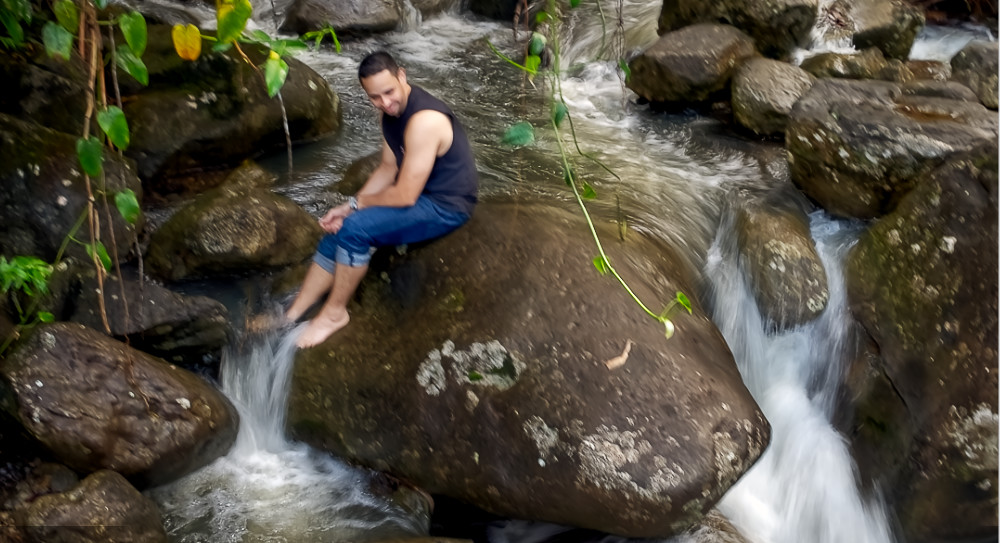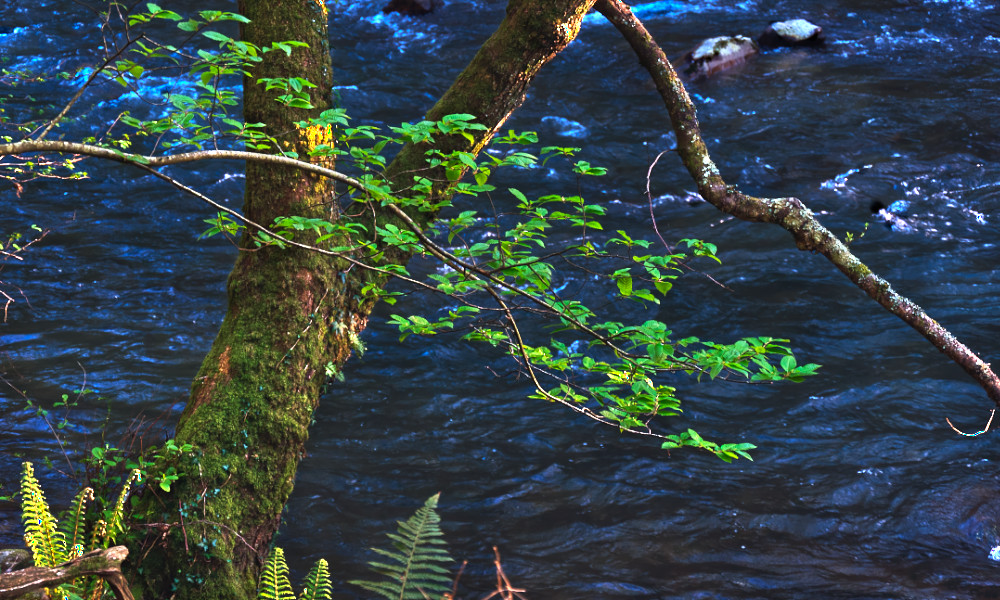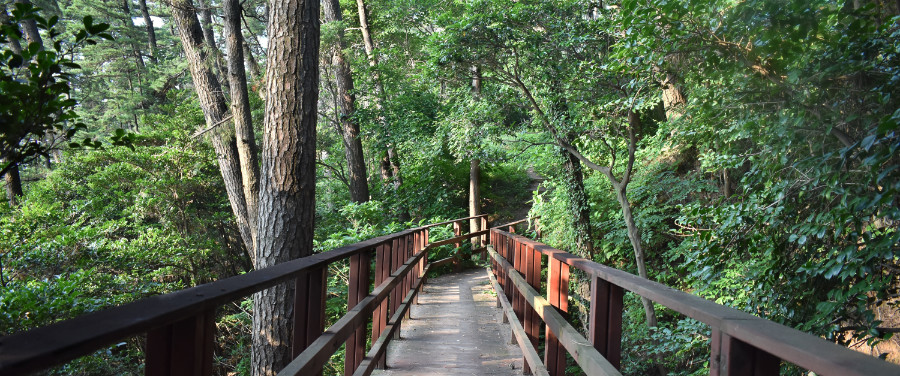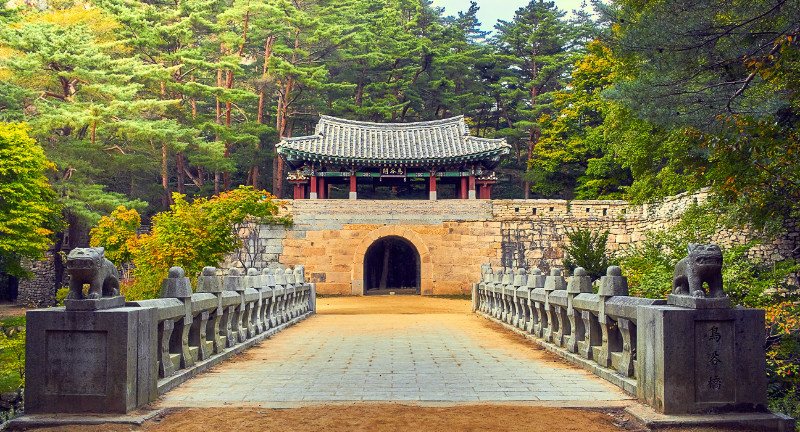
Uni II: I'm so Happy I spent my life climbing trees
In this post:
This is the second part of a four part series covering things that I didn’t know one could get a college degree on. If you enjoyed the previous post and are tempted by a career y parapsychology then you know at least one place where you can go. Today, I want to tell you about another awesome discipline of study in another exotic part of the world. Forest-bathing, also known as forest-healing or, as the Japanese know it and the world is beginning to discover, Shinrin-yoku.

Today, for the second post of our series, I am going to talk to you about a wonderful thing that I discovered reading a book. I love books, I always discover nice things in books. Anyway, the book is called The Nature Fix by Florence Williams. Technique-wise this book is all over the place however, it’s packed-full with interesting things and so I highly recommend it. But the book is not the whole point of this blog post, rather it is what led me to discover the topic for this blog: the practice of Shinrin-yoku or forest bathing.
Despite it’s name, you don’t have to be wet or naked to enjoy the benefits of forest bathing.—You can, if you want to, but it is not recommended if you are in a public place, and what is not a public place in this era of 7.8 billion people living together is this modest-sized planet?—So if not naked and wet then what?
According to Forestry England:
"This Japanese practice is a process of relaxation; known in Japan as shinrin yoku. The simple method of being calm and quiet amongst the trees, observing nature around you whilst breathing deeply can help both adults and children de-stress and boost health and wellbeing in a natural way.”
This definition manages to sound both obvious and kind of New Agey but before you accuse me of trying to push my nerdy hypotheses on you, let’s discuss how it turns out that us tree-huggers were right.
I read the book and then I followed the leads. A quick internet search showed that there are indeed some papers out there that seriously investigate the topic. As a matter of fact, a moderate amount of academic research has been conducted in this area, mostly in Japan, South Korea, and China, and some convincing empirical evidence has been found in terms of the effect of forest healing.
A more comprehensive definition of Shinrin-yoku, according to Professor Qing Li from the Department of Hygiene and Public Health of Nippon Medical School states that:
“A forest bathing trip involves visiting a forest for relaxation and recreation while breathing in volatile substances, called phytoncides (wood essential oils), which are antimicrobial volatile organic compounds derived from trees, such as 𝛼-pinene and limonene.”
Research findings indicate traceable links between the practice of forest bathing and therapeutic health benefits on: (1) immune system function, (2) cardiovascular system, (3) the respiratory system, (4) depression and anxiety, (5) mental relaxation, and (6) human feelings of awe leading to increased gratitude and selflessness—this according to a review published by Margaret Hansen and colleagues from the School of Nursing and Health Professions of the University of San Francisco. Within this same review, they point to the work of Kaplan and Kaplan who found that exposure to naturally occurring stimuli that engages the five senses increases activation in the parasympathetic nervous system and a heightened awareness that leads to a state of relaxation.
That sounds good to me. Actually it sounds fabulous. I have always found something calming in nature and seeing my subjective experience validated by serious, systematic research always makes me happy.

So where does one study this awesome-sounding discipline? Well, combing my sources I found academic research in various places around the world. Where there is academic research, there are graduate students and post-docs performing the experiments or constructing the models, and professors supervising them and getting grant money to continue the research. Besides the two places that I already mentioned, I found other studies from the Center for Environment, Health, and Field Sciences at Chiba University in Japan. However, the only place with an official academic program so far, was the one that Florence Williams mentions in her book, the Graduate School of Forest Therapy within the Department of Forest Science at Chungbuk National University, in South Korea.—Wow! And good for you, South Korea!
I kept looking around the internet and found several websites offering suggestions on how to forest-bathe—again, not naked—and expounding the benefits of the practice. Which tells me that Shinrin-yoku is becoming popular in the West even if we are still lagging in serious research in the field.

Anyway, do you believe in the potential health benefits of spending time in nature? Does the evidence so far convinces you of the need of preserving our natural spaces? Why or why not? And would you consider a career in forest healing?
I don’t know that I would, but I’m so happy of having spent my life climbing trees, walking in nature, and writing under trees, and plan to continue to do so as long as I can.
References and Resources:
1. A guide to forest bathing in England
2. Forest Healing in South Korea: Ted talk of Florence Williams
3. Shinrin-Yoku (Forest Bathing) and Nature Therapy: A State-of-the-Art Review
4. Effect of forest bathing trips on human immune function
5. Why Forest Bathing Is Good for Your Health
6. Japanese Society of Forest Medicine
7. Graduate School of Forest Therapy within the Department of Forest Science at Chungbuk National University, South Korea
8. A website dedicated to the healing forest with a nice forest bathing guide